Turkey is facing difficult times. High inflation and negative interest rates are eating away at people’s incomes and savings.
The reason is that President Erdogan took the “Hail” step to save his political legacy. He is currently in the process of devaluing the Turkish Lira in order to establish a positive trade balance. If he succeeds in doing this, Turkey can avoid turning to the International Monetary Fund (IMF) for a loan. High inflation is the price he is willing to pay for it.
Istanbul residents lined up for cheap bread
Today Erdogan reinforced his move :
On December 16, Turkey’s central bank cut its weekly repo rate by 100 basis points to 14%, in line with market expectations.
Turkey’s central bank blamed the rise in consumer prices on “changes in exchange rates and supply factors such as rising world food and agricultural prices, supply constraints and changes in demand.”
It states that a reassessment of “all aspects of the policy framework” will be carried out during the first three months of 2022.
Turkey’s central bank interest rate is now 14%, while the latest official inflation rate is 21%… The real inflation rate is noticeably higher.
The central bank slyly blames the rise in consumer prices for “changes in exchange rates.” The exchange rate of freely tradable currency is determined real interest rate, the difference between the nominal interest rate and inflation:
To understand the so-called lira crisis, you must understand the basic mechanics of the foreign exchange and bond markets. The most important fact is that interest rates and exchange rates are determined jointly. Turkey’s central bank can control either the exchange rate or the interest rate – it cannot control both in a world of free capital flows.
Since 2014, the lira has been gradually falling, and this year it has fallen sharply.
On February 1, 2021, the Turkish lira was worth 14.5 US cents. Today it costs 6.4 US cents. Turkey must import all the oil and gas it needs. They are priced in US dollars. Today, a Turkish taxi driver has to pay twice as much to fill a gas tank as a year ago. Energy price increases apply to all other goods and services. Wheat must be harvested, dried, transported, crushed and crusty to become bread. Bread prices in Turkey are regulated, but bakeries cannot afford to subsidize their produce.
When it comes to bread, a sacred product that Turks traditionally eat with every meal, the government stepped in by forcing bakeries to sell traditional white bread at a lower price than its cost, in the hopes of curbing inflation, which could sow discontent and reduce the chances of Erdogan’s election. after 18 months.
Grocery stores were forced to stick to a fixed price for the sale of bread set by the Chamber of Bakeries, a trade association, but most bakers said the order came from the central government.
…
Nevertheless, in a sign of the depth of the economic crisis, bread sales are falling, and bakeries, forced to keep prices at the set level, warn that they are facing bankruptcy.
“I cannot start a business,” said 39-year-old Ahmet Ukar. “The price of flour continues to rise.”
…
Mr Ucar said that he ran into 100,000 lira in debt during the pandemic and is now grappling with uncertainty caused by price fluctuations due to the currency collapse. “It is impossible to understand what the government is going to do next,” he said.
Turkish President Recep Tayyip Erdogan wants to cut interest rates. He claims that high interest rates cause inflation and cites religious motives against them. This is nonsense. In fact, Erdogan wants pure mercantilism to bring down the value of the Turkish lira to increase exports:
Erdogan achieved a permanent devaluation of the lira, effectively lowering unit labor costs in Turkey and thereby making Turkish workers more competitive than Germans. This is what economists call the beggar-thy-neighbor policy. [..] [Y] You cannot understand what Erdogan is up to if you do not appreciate the ruling logic. Financial investors may be dumping lira assets, but with a weaker lira, Turkish goods do indeed become more competitive in domestic and European markets, and Turkey is indeed becoming a more attractive destination for foreign direct investment for global manufacturing companies looking to lower unit labor costs.
The logic is hardly new. Americans have long argued that China is interfering in foreign exchange markets to make Chinese goods more competitive. The same charge was leveled against Japan when it threatened to become number one.
…
[T] It is nothing new for a midsize country to seek a weak currency in order to become more competitive. Doctrically speaking, economists are reluctant to say that such a policy can ever be effective. But the proof of the pudding is eating it. Countries are competitively devaluing because they are working. Indeed, Turkish exports have responded enthusiastically.
Turkey – export (over 10 years)
Across trade economy:
Exports from Turkey rose 20.1% from a year earlier to a record $ 20.79 billion in October 2021, amid further recovery in global demand and a fall in the lira. The sales of industrial products (20.3%), agricultural products (12.5%), as well as the mining industry and quarries (19.9%) grew. Germany was the main export partner, followed by the US, UK, Iraq and Italy.
Despite the growth in exports and tourism, which also brings in US dollars, Turkey’s trade balance in October was still negative at US $ 1,437.90 million. But that’s better than the $ 2,591.34 million deficit in September. Turkey has only a few billion dollars left in central bank reserves and can no longer afford a trade deficit. Thus, Erdogan is trying to achieve a positive trade balance, in which Turkey exports more than it imports, and also attracts additional tourism revenues: reduce the cost of the lira -> increase exports and tourism -> balance trade.
Turkey – trade balance (10 years)
If this does not work, then in the near future Turkey will run out of US dollars, and she will have to turn to the IMF: ask for a large loan in dollars. This will happen, like all IMF loans, with tough political demands. This would be an extreme humiliation for Erdogan. In 2013, at the height of his success as a politician and shortly before becoming president, Turkey was immensely proud of the payoff his latest IMF loan :
Turkish Deputy Prime Minister Ali Babacan pushed the button to repay the last installment to the International Monetary Fund (IMF) on Tuesday, and Turkey pledged an additional $ 5 billion to the IMF.
Turkey’s latest contribution to the IMF was transferred by Babacan and Deputy Finance Minister Khalil Janakchi at the Turkish Central Bank in Ankara. Babacan stressed that Turkey should be proud of the payment of the debt to the IMF, with which Turkey has concluded 19 Stand-By agreements.
…
Turkey paid off its 52-year debt to the IMF, which it joined in 1947, thanks to political stability and financial discipline.
Asking for new IMF support shames Erdogan. It will also open the door for US intervention in Turkish politics. So it’s no surprise that he’s struggling to avoid it.
But of course what he does is fraught with huge risk:
The main risk is that inflation could spiral out of control. In part, the recent surge is simply a “carry-over” of higher import prices as a result of the weaker lira. It is, by definition, transient. The real risk is a spiral of expectations. If economic actors anticipate ever higher inflation, the situation could spiral out of control.
It seems to me that the spiral of expectation is already happening. This chart below is the inverse of the currency chart above. It shows how a golf club increases the amount of Turkish Lira required to buy $ 1. Since mid-November, the value of the lira has fallen sharply.
Erdogan could stop fall of the lira today:
To contain the threat [спирали ожиданий], Turkey’s central bank will eventually have to raise interest rates, which will also stabilize the lira. Paradoxically, we learn that Erdogan’s bid was successful, precisely when he surrenders. By allowing the interest rate to rise, thereby stabilizing the lira and curbing inflation, it would ensure permanent devaluation and restore macroeconomic stability. The key is knowing when to fold. Erdogan has shown himself capable of such tactical flexibility. As the FT notes, he is a “cunning pragmatist” who allowed the central bank to “raise interest rates during previous episodes of currency volatility.” However, this time he, “seems determined to fulfill his ideological commitment to low interest rates. “ …
By ordering the central bank to cut interest rates again today, Erdogan achieved the opposite stability. With a negative real interest rate of more than 7%, the lira has nowhere to go but to fall.
To stem the recession and bring inflation down will now require a huge hike in interest rates. This could slow new economic activity as domestic borrowing in Turkey would suddenly become prohibitively expensive. Turkey’s economy will go into recession.
This trip between the Scylla of high inflation and the IMF Charybdis is a long-term consequence of Erdogan’s economic policies. He became prime minister in 2003. In 2014, after changing the constitution, he became president.
Turkey – trade balance (25 years)
In 2003, Turkey had a small and manageable trade deficit. Throughout his reign, the imitator of the Sultan Erdogan advocated cheap loans and large government projects. Both cost big bucks and increased trade deficits. His war with Syria since 2011 has also been very expensive. The trade deficit rose sharply, but Erdogan tried to project economic stability. In 2019, as the lira began to decline, Erdogan’s son-in-law, then finance minister, spent $ 130 billion from Turkey’s foreign exchange reserves to stabilize the lira. This left the government military chest empty.
With no more funds to protect the lira’s value, Erdogan changed his strategy and began the current “Hail Mary” move, deliberately dragging the lira down to reduce the trade deficit. But the resulting high inflation has now become a political burden that will make it difficult for him to win the next election. Raising the interest rate early next year to stem the fall of the lira will likely be too late to repair the severe damage now inflicting on inflation.
But there really isn’t much that Erdogan can do if he wants to avoid a humiliating visit to the IMF. The people of Turkey will face a frantic race and ever-increasing inflation that will make them all poorer than most of them already are. Political instability in Turkey will intensify as despair sets in. However, it is unlikely that this will be enough to lead to Erdogan’s resignation before the 2023 elections.
By that time, the new government will face a truly difficult political task – to fix the half-sunken ship, without causing even more outrage among the people.
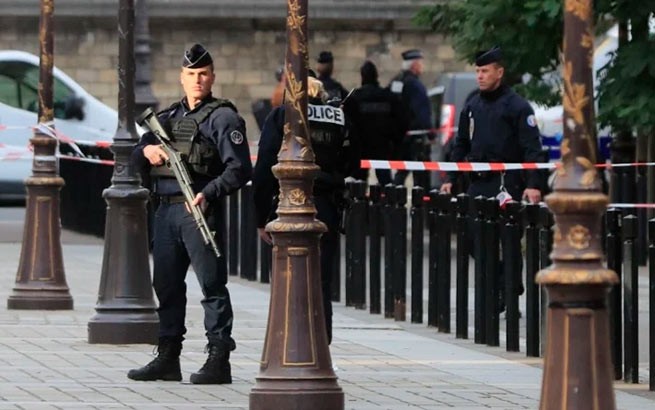
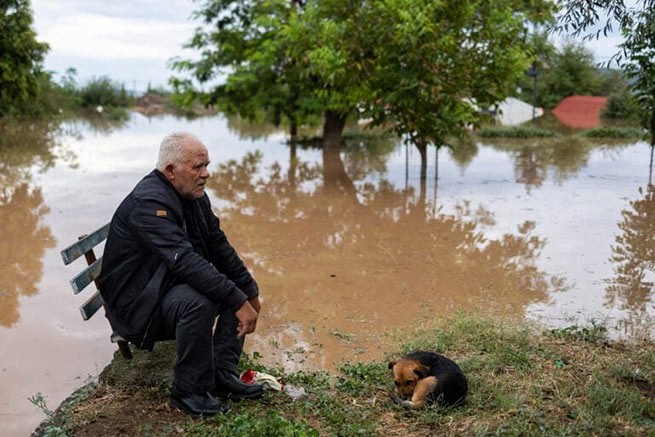
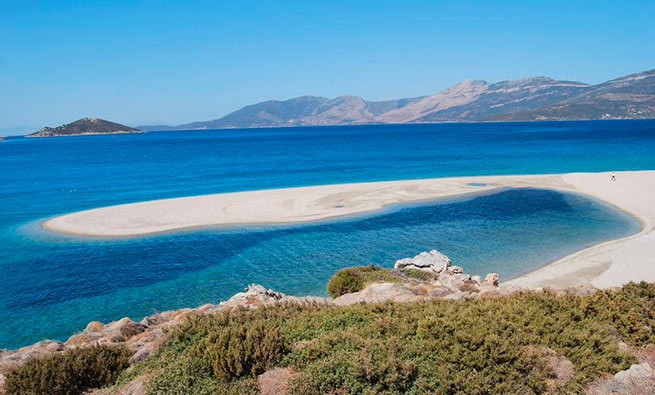
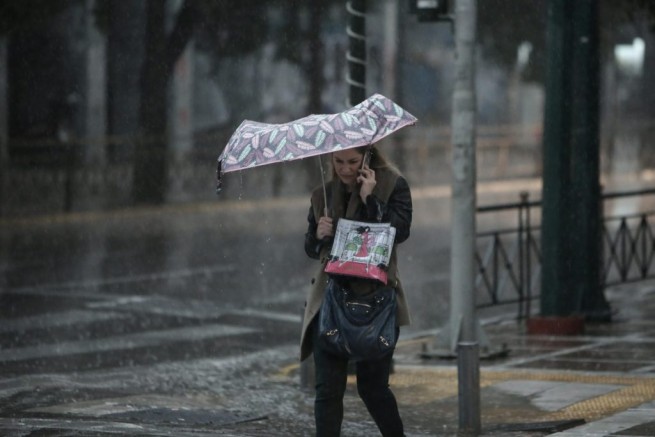
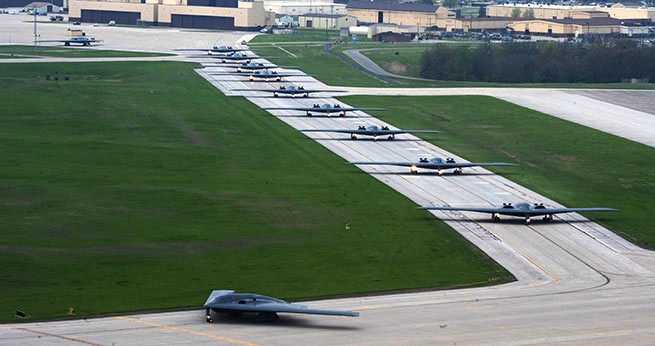

More Stories
A man with a grenade entered the Iranian consulate in Paris
12 American B-2 Spirit strategic bombers take off from Missouri
Google fired 28 employees who took part in anti-Israel demonstrations